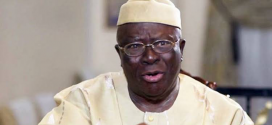Design of the 2012 London Olympics
HOW MUCH GOLD THE GOLD MEDAL REALLY CONTAINS?
Contrary to the opinion of many, Gold medals at the London Games are made largely of silver with a thin gold coat and some copper which values them at $706(N114,000) by current prices, according to the World Gold Council. In fact, for the first time, the silver content in the 2012 medals is worth more than the gold.
The amount of gold in an Olympic gold medal has fallen to 1.34 percent, thanks to gold prices that recently peaked at $1,895 an ounce. At current prices, a pure 400g medal would cost about $25,000 to make which amounts t0 4,050,000 in Naira. 14 ounces which is what is required for gold medals at London would cost over 25 million pounds ($40 million) if made entirely of the precious metal.
In fact, there hasn’t been solid gold medals since the 1912 Stockholm Games. Pure Gold medals were only gold for eight years. The 1904 Olympics in St. Louis introduced the gold medal as the prize for first place.
Modern medals must have a minimum of 92.5 percent( 550 grams)high quality silver content, 6.16percent copper, and at least 1.34 percent(six grams) of gold , International Olympic Committee rules state, although the host city gets to choose its design.
On the other hand, For the silver medal, the gold is replaced with more copper, for a $260N(42,120) bill of materials. The bronze medal is 97 percent copper, 2.5 percent zinc and 0.5 percent tin. Valued at about $3(N486), one might be able to trade one for a plate of rice at Mr Biggs, without the chicken of course!lol.
MARKET VALUE?
Although all that glitters is not gold, winning a gold medal can give athletes the Midas touch with sponsors, or, for some medalists, offer an attractive resale value.
While some Athletes keep their medals as a memory for a life time achievement, others give its outs as gifts or simply just sell it off , for various reasons.
British Olympian Daley Thompson gave his two decathlon gold medals from the 1980 and 1984 Games to his training partners.
Ukrainian heavyweight boxer Wladimir Klitschko sold his medal from the 1996 Atlanta Games for $1 million in March this year with the funds going to the Klitschko Brothers Foundation which promotes sports among children.
Chioma Ajunwa we hear kept hers to show to her great grand children what grandma acheived in “her days”…hehe!
Cuban boxer Yuriorkis Gamboa Toledano sold the gold medal he won at the 2004 Athens Games to support his family before he defected to Germany in 2006.
Such sales have created a market for Olympic gold medals with mixed selling prices.The current world record price for an Olympic medal was achieved in November 2010 when a gold won by Mark Wells, a member of the 1980 “miracle on ice” U.S. men’s hockey team, was sold for $310,700.
However, be that as it may, it is concluded that the cost or value of selling a medal is not by the value of the metal being gold, silver or bronze, but by the exceptional story behind the athlete.
FINANCIAL REWARDS FOR GOLD MEDALISTS?
Athletes with the golden touch can expect a handout from their country as many of the 204 National Olympic Committees have financial incentive schemes for gold winners.
Singaporean athletes are being offered one of the biggest incentives with an offer of 1 million Singapore dollars ($800,000) for a gold. Singapore has never won gold at the Olympics.
The United States will pay 15,000 pounds ($25,000) to gold medallists while Australians will receive A$20,000 ($20,900), feature on an Australia stamp and get a flight upgrade home.
Russia, battling Britain to keep its third place in the gold medal table, has promised athletes 85,000 pounds ($135,000) for golds while there are reports Italy has offered 116,000 pounds ($182,000).
China, which is jostling with the United States for top of the gold medals tally, has not released details of financial incentives but the Chinese language Sports Weekly reported they were likely to hand gold winners $51,000.
India has promised coaching jobs to athletes who win medals.
British athletes, however, will have to settle for national glory and their image on a stamp rather than cash.
British Olympic chiefs are of the view that financial rewards do not significantly impact the motivation of athletes to reach the podium and it is their desire to compete at the Olympics that is their main driving force.
As far as Nigeria is concerned, no official statement has been made as to what awaits financially, any athlete who bags a gold at the London 2012 Olympics.
 Hottestgistnaija.com
Hottestgistnaija.com




